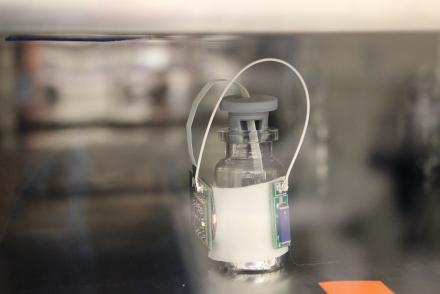Purdue research hub looks to make lyophilization obsolete
Purdue University researchers and industry leaders are teaming up to transform the freeze-drying process, formally known as lyophilization, used to make everything from lifesaving drugs and biotech products to foods.
A consortium of researchers, industry members from pharmaceutical and food processing sectors, as well as equipment makers and others, are working together at the Advanced Lyophilization Technology Hub, or LyoHub, at Purdue to modernize a process that has not changed fundamentally in 70 years even though it has a worldwide annual market of about $16 billion.
“Our ultimate goal is to develop a new type of process that will make lyophilization obsolete,” said Elizabeth Topp, professor of industrial and physical pharmacy. “I hope the conventional inefficient process will be supplanted by something that can be better controlled and is much more efficient in terms of time and energy.”
Lyophilization removes water from a product after it is frozen and placed under a vacuum, converting the solid, frozen water directly to vapor without passing through a liquid phase. This process is known as sublimation. The process is used to increase the stability and shelf life of pharmaceutical products while keeping their chemical integrity. It also makes food easier to transport while preserving the food’s nutritional quality, taste, shape and size. The process was developed during World War II to preserve blood plasma and medications such as penicillin without the need for refrigeration.
The problem with lyophilization, however, is that it is time-consuming, expensive and has an energy efficiency of less than 5 percent. A lyophilizer is run in batches, like someone baking cookies in an oven, compared with other manufacturing processes that are run continuously with raw materials being fed into one end and finished products rolling out the other. The batch system gives producers less control and poses challenges to ensuring uniformity, said Topp, who co-leads LyoHub with Alina Alexeenko, a Purdue professor of aeronautics and astronautics.
Lyophilization ...
For Lyophilization, Excipients Really Do Matter
Excipients Use in Parenteral and Lyophilized Formulation Development
PRACTICAL CONSIDERATIONS FOR LYOPHILIZED FORMULATION AND CYCLE DEVELOPMENT

